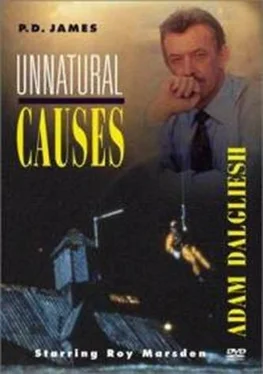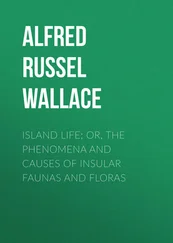P James - Unnatural Causes
Здесь есть возможность читать онлайн «P James - Unnatural Causes» весь текст электронной книги совершенно бесплатно (целиком полную версию без сокращений). В некоторых случаях можно слушать аудио, скачать через торрент в формате fb2 и присутствует краткое содержание. Жанр: Детектив, на английском языке. Описание произведения, (предисловие) а так же отзывы посетителей доступны на портале библиотеки ЛибКат.
- Название:Unnatural Causes
- Автор:
- Жанр:
- Год:неизвестен
- ISBN:нет данных
- Рейтинг книги:4 / 5. Голосов: 1
-
Избранное:Добавить в избранное
- Отзывы:
-
Ваша оценка:
- 80
- 1
- 2
- 3
- 4
- 5
Unnatural Causes: краткое содержание, описание и аннотация
Предлагаем к чтению аннотацию, описание, краткое содержание или предисловие (зависит от того, что написал сам автор книги «Unnatural Causes»). Если вы не нашли необходимую информацию о книге — напишите в комментариях, мы постараемся отыскать её.
Unnatural Causes — читать онлайн бесплатно полную книгу (весь текст) целиком
Ниже представлен текст книги, разбитый по страницам. Система сохранения места последней прочитанной страницы, позволяет с удобством читать онлайн бесплатно книгу «Unnatural Causes», без необходимости каждый раз заново искать на чём Вы остановились. Поставьте закладку, и сможете в любой момент перейти на страницу, на которой закончили чтение.
Интервал:
Закладка:
Dalgliesh asked whether Seton had mentioned that he was changing his genre.
“Yes, he did. When I last saw him about ten weeks ago. I had to listen to the usual diatribe about the decline of standards and the exploitation of sex and sadism but then he told me that he was planning to write a thriller himself. In theory, of course, I should have welcomed the change, but, in fact, I couldn’t quite see him pulling it off. He hadn’t the jargon or the expertise. It’s a highly professional game and Seton was lost when he went outside his own experience.”
“Surely that was a grave handicap for a detective writer?”
“Oh, he didn’t actually do murder as far as I know. At least, not in the service of his writing. But he kept to familiar characters and settings. You know the kind of thing. Cosy English village or small-town scene. Local characters moving on the chessboard strictly according to rank and station. The comforting illusion that violence is exceptional, that all policemen are honest, that the English class system hasn’t changed in the last twenty years and that murderers aren’t gentlemen. He was absolutely meticulous about detail though. He never described a murder by shooting, for example, because he couldn’t understand firearms. But he was very sound on toxicology and his forensic medical knowledge was considerable. He took a great deal of trouble with rigor mortis and details like that. It peeved him when the reviewers didn’t notice it and the readers didn’t care.”
Dalgliesh said: “So you saw him about ten weeks ago. How was that?”
“He wrote and asked to see me. He came to London purposely and we met in my office just after six-fifteen when most of the staff had left. Afterwards we came here to dine. That’s what I wanted to talk to you about, Adam. He was going to alter his will. This letter explains why.” He took a folded sheet of writing paper from his wallet and handed it to Dalgliesh. The paper was headed “Seton House, Monksmere Head, Suffolk.” The letter, dated thirtieth July, was typed and the typing, although accurate, was inexpert, and something about the spacing and the word division at the end of lines marked it as the work of an amateur. Dalgliesh realised immediately that he had recently seen one other typescript by the same hand. He read:
Dear Gurney ,
I have been thinking over our conversation of last Friday-and here I must digress to thank you again for a most enjoyable dinner-and I have come to the conclusion that my first instinct was right. There is absolutely no sense in doing things by half. If the Maurice Seton Literary Prize is to fulfill the great purpose which I plan for it the capital outlay must be adequate, not only to ensure that the monetary value of the award is commensurate with its importance, but also to finance the prize in perpetuity. I have no dependents with a legitimate claim on my estate. There are those people who may think they have a claim but that is a very different matter. My only living relative will be left a sum which hard work and prudence will enable him to augment should he choose to exercise these virtues. I am no longer prepared to do more. When this and other small bequests have been made there should be a capital sum of approximately £120,000 available to endow the prize. I tell you this so that you may have some idea of what I intend. As you know my health is not good and although there is no reason why I should not live for many years yet, I am anxious to get this affair under way. You know my views. The prize is to be awarded biennially for a major work of fiction. I am not interested particularly in encouraging the young. We have suffered enough in recent years from the self-pitying emotionalism of the adolescent writer. Nor do I favour realism. A novel should be a work of imaginative craftsmanship not the dreary shibboleths of a social worker’s casebook. Nor do I restrict the prize to detective fiction; what I understand by detective fiction is no longer being written .
Perhaps you will think over these few ideas and let me know what you suggest. We shall need trustees of course and I shall consult lawyers in regard to the terms of my new will. At present, however, I am saying nothing about this plan to anyone and I rely on you to be equally discreet. There will inevitably be publicity when the details are known but I should much deplore any premature disclosures. I shall, as usual, be staying at the Cadaver Club for the last two weeks in October and I suggest that you get in touch with me there .
Yours sincerely ,
Maurice Seton
Dalgliesh was conscious of Gurney’s little black eyes on him as he read. When he had finished he handed back the letter, saying: “He was expecting rather a lot of you, wasn’t he? What was the firm getting out of it?”
“Oh, nothing, my dear Adam. Just a lot of hard work and worry and all of course for the greater glory of Maurice Seton. He didn’t even restrict the prize to our list. Not that it would have been reasonable, I admit. He wanted to attract all the really big names. One of his chief worries was whether they would bother to apply. I told him to make the prize large enough and they’d apply all right. But £120,000! I never realized he was worth that.”
“His wife had money… Did he talk to anyone else about his plan do you know, Max?”
“Well, he said not. He was rather like a schoolboy about it. Tremendous swearings to secrecy and I had to promise I wouldn’t even telephone him about it. But you see my problem. Do I, or do I not, hand this over to the police?”
“Of course. To Inspector Reckless of the Suffolk CID, to be precise. I’ll give you his address. And you’d better phone him to say it’s on the way.”
“I thought you’d say that. It’s obvious, I suppose. But one has these irrational inhibitions. I know nothing of his present heir. But I imagine that this letter gives someone a whacking great motive.”
“The best. But we’ve no evidence that his heir knew. And, if it’s any comfort to you, the man with the strongest financial motive also has the strongest alibi. He was in police custody when Maurice Seton died.”
“That was clever of him… I suppose I couldn’t just hand this letter over to you, Adam?”
“I’m sorry, Max. I’d rather not.”
Gurney sighed, replaced the letter in his wallet and gave his attention to the meal. They did not talk again of Seton until lunch was over and Max was enveloping himself in the immense black cloak which he invariably wore between October and May, and which gave him the appearance of an amateur conjuror who had seen better days.
“I shall be late for our Board meeting if I don’t hurry. We have become very formal, Adam, very efficient. Nothing is decided except by resolution of the whole Board. It’s the effect of our new buildings. In the old days we sat closeted in our dusty cells and made our own decisions. It led to a certain ambiguity about the firm’s policy but I’m not sure that was such a bad thing… Can I drop you anywhere? Who are you off to investigate next?”
“I’ll walk, thank you, Max. I’m going to Soho to have a chat with a murderer.”
Max paused, surprised. “Not Seton’s murderer? I thought you and the Suffolk CID were baffled. D’you mean I’ve been wrestling with my conscience for nothing?”
“No, this murderer didn’t kill Seton although I don’t suppose he would have had any moral objections. Certainly someone is hoping to persuade the police that he’s implicated. It’s L. J. Luker. Remember him?”
“Didn’t he shoot his business partner in the middle of Piccadilly and get away with it? It was in 1959, wasn’t it?”
“That’s the man. The Court of Criminal Appeal quashed the verdict on grounds of misdirection. Mr. Justice Brothwick, through some extraordinary aberration, suggested to the jury that a man who made no reply when charged probably had something to hide. He must have realised the consequences as soon as the words were out of his mouth. But they were said. And Luker went free, just as he said he would.”
Читать дальшеИнтервал:
Закладка:
Похожие книги на «Unnatural Causes»
Представляем Вашему вниманию похожие книги на «Unnatural Causes» списком для выбора. Мы отобрали схожую по названию и смыслу литературу в надежде предоставить читателям больше вариантов отыскать новые, интересные, ещё непрочитанные произведения.
Обсуждение, отзывы о книге «Unnatural Causes» и просто собственные мнения читателей. Оставьте ваши комментарии, напишите, что Вы думаете о произведении, его смысле или главных героях. Укажите что конкретно понравилось, а что нет, и почему Вы так считаете.












